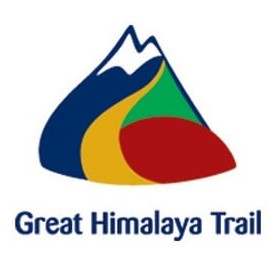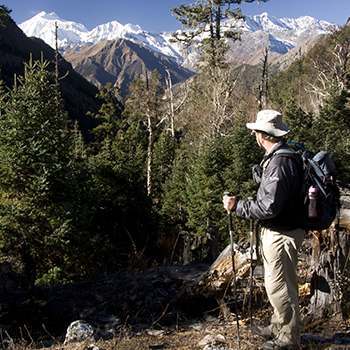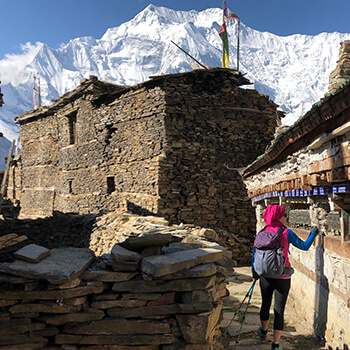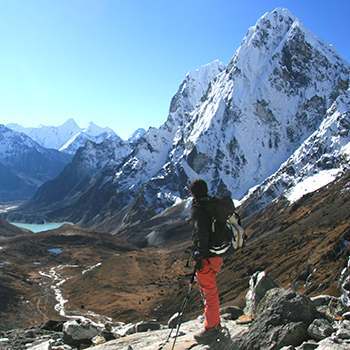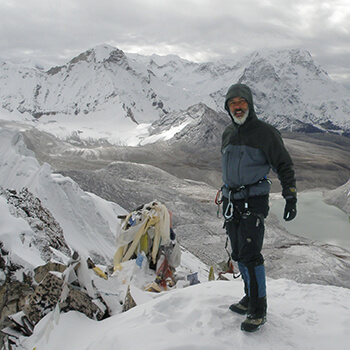GHT Dos and Donts
GHT Dos and Donts will save you from embarrassing moments, make sure that you don’t cause offense and how to have a great time with the locals!
Almost anyone who visits Nepal, India or Bhutan returns with a story of another tourist’s inappropriate behaviour or dress. To commit the occasional faux pas is inevitable when exploring foreign shores and locals will often make light of your indiscretion. Some behaviours that should be avoided at all costs are:
- Taking advantage of traditional hospitality without understanding the implications,
- Overt ostentation,
- Disrespecting ceremonies or customs, and
- Dressing inappropriately.
If you are unsure how to behave follow the lead of a local, and if necessary, ask questions. Everyone will understand that you are trying to do the right thing and you’ll be given all the support to participate in local lives to the fullest. This list of advice is by no means exhaustive, so please apply liberal amounts of common sense to your day.
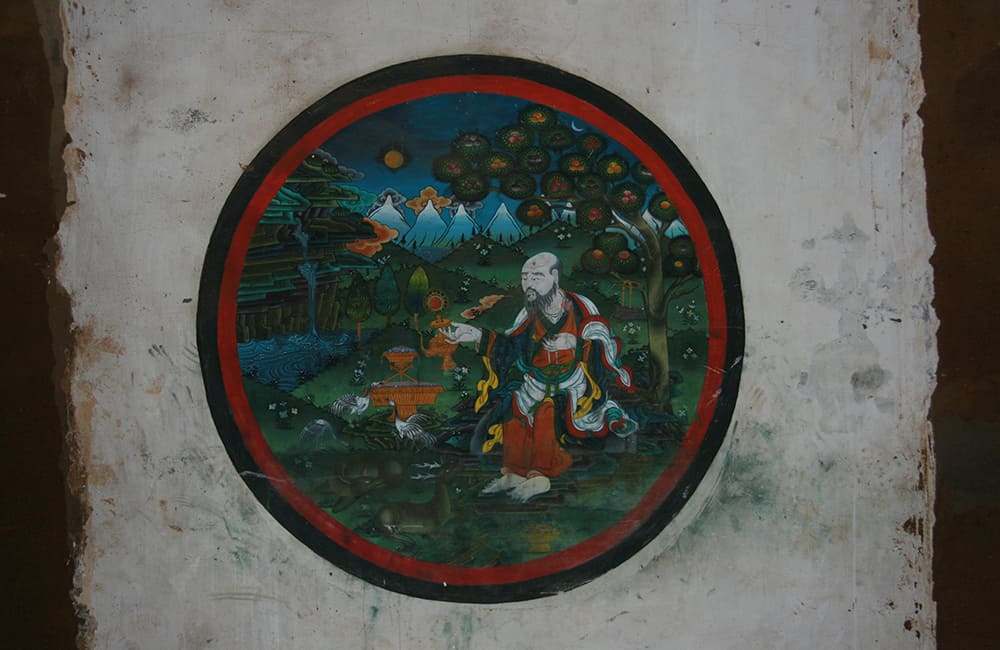
You might also find these pages useful:
Respect Cultures and Traditions
- Consideration: Be a considerate guest at all times. Himalayan cultures are rich and diverse and can sometimes confuse a visitor. But if you are friendly, approachable and consider those around you before yourself, you will always earn the respect of locals.
- Photos: Ask before taking a photo. Many people prefer not to be photographed for personal, cultural or superstitious reasons. You should also be careful of taking photos in and around places of worship.
- Gift Giving: The complex patina of local societies sometimes calls for gift giving or making a donation; this may be to a monastery or shrine, at a wedding, or at a cultural programme. Whenever you are faced with needing to give a gift you should seek the advice of a local to work out what is appropriate. The method of, or the formality associated with, giving a gift is often as important as the gift itself, so make sure you are aware of any protocols.
- Affection: Do not show affection in public.
- Bathing: Showing your genitalia when bathing is offensive. Use a sarong, modesty screen or shower tent and when visiting a hot spring try to behave modestly.
Benefit Local Communities
- Share Skills and Experiences: Teach when you can, offer a fair rate of pay for services, participate in activities whenever invited.
- Do Not: publicly argue, drink excessively, or fight. Demonstrations of anger are considered an embarrassing loss of face on your behalf.
- Begging: Of all the negative impacts tourists have had in the Himalaya, the encouragement of begging along the trail is probably the most problematic. Handing out candy (referred to as sweets, mitai or bonbons) to children who never clean their teeth is thoughtless and irresponsible. Giving money to small children in return for picked flowers is destructive and illegal in all National Parks.
If your conscience struggles with the wealth divide, why not try to find ways to provide skills through training and education, or donate to one of the major charities in Kathmandu or Pokhara? Please, do not just give away items along the trail and so perpetuate a habit that ultimately only reduces self-esteem and can cause long-term problems. If you aren’t convinced of the negative effects of spoiling ‘cute’ children with treats, then trek away from the main trails and experience the genuine, openhearted joy that children show tourists without the expectation of a ‘reward’.
See Give Something Back for more information.
Adopt New Customs
- Clothing: Do not wear tight or revealing clothing, especially if you are a woman. In traditional communities there is a general dress code followed by locals and the only exceptions are the very poor or for special reasons. In cities, locals dress in mostly western styles, except for Bhutan, where the national dress is obligatory. It is considered offensive to expose your knees, shoulders and chest at any time, and especially in any place of worship. This means that although practical, detachable leg trousers/pants are not ideal, and cropped tops of any description should be avoided. Men can wear knee-long shorts but should avoid exposing their chests. It is also considered offensive to highlight genitalia, so avoid wearing stretch or very tight clothing around the chest or groin.
- Entering Homes: It is critical that you wait to be invited into a home. The caste system prescribes a hierarchy of which rooms you may, or may not, be allowed to enter, so respect the wishes of the homeowner. The cooking-fire area is considered sacred, so always check if you can dispose of burnable rubbish before consigning it to the flames.
- Greetings: Nepalese and Indians greet each other with the traditional, ‘Namaste!’ Bhutanese with ‘Kozu Zangpo La!’ Sometimes locals will shake hands, especially if they are used to tourists or have retired from the Royal Gurkha Rifles. However, in general you should avoid touching people, especially of the opposite gender. A namaste, or thanks, or taking a little time to play or practise English is always preferable to a short or quick reply. It will both build respect and relieve any stress you may feel from curious locals.
- Eating: Do not use your left hand to eat or pass objects. Traditionally all Himalayan peoples eat only with the right hand, the left being considered unclean. Therefore pass foodstuffs to another person with your right hand and use your left as little as possible. You should also avoid touching the lip of a vessel to your mouth; just pour the drink into your mouth.
- Offering Payment and/or Gifts: It is respectful to use both hands, or offer with your right hand while touching your left hand to your right elbow.
- Language: Learn some basic local phrases and use them as often as possible.
Care for the Environment
- Tread Softly: Stick to trails and recognised camping areas. Avoid creating new tracks, or damaging the environment in any way. Follow the adage: take only photos, leave only footprints.
- Pack it in, Pack it out: Avoid taking tins, glass, or plastic containers and bags unless you plan to carry them back to Kathmandu or Pokhara.
- Conserve Water Quality: Wash away from water sources and always use local toilet facilities when available. Bury all organic waste at least 30cm below the ground and 50m away from water sources.
- Conserve Natural Resources: What few resources there are belong by right to the locals. Always ask permission before using anything along the trail. It is illegal to disturb wildlife, remove animals or plants, or buy wildlife products.
For more information about degrading times for different materials, see down2earthmaterials.ie
How long does it take to degrade?
- Plastic bottles: 70-450 years
- Plastic bag: 500-1000 years
- Tin can: around 50 years
- Leather shoes: 25-40 years
- Thread: 3-4 months
- Cotton: 1-5 months
- Rope: 3-14 months
- Cigarette: 1-12 years
- Milk packet (tetra) covers and drink packets: 5 years
- Nylon clothes: 30-40 years
- Sanitary napkins & children diapers: 500-800 years
- Glass bottles: 1,000,000 years
- Hairspray bottle: 200-500 years
- Fishing line: 600 years.
- Glass bottle; 1-2 million years
- Aluminum can: 200 years
Time to make sure you’re looking after yourself!
Your health and wellbeing never stops being important while you are in the hills, so now it’s time you check through our tips and hints for always being in shape!
